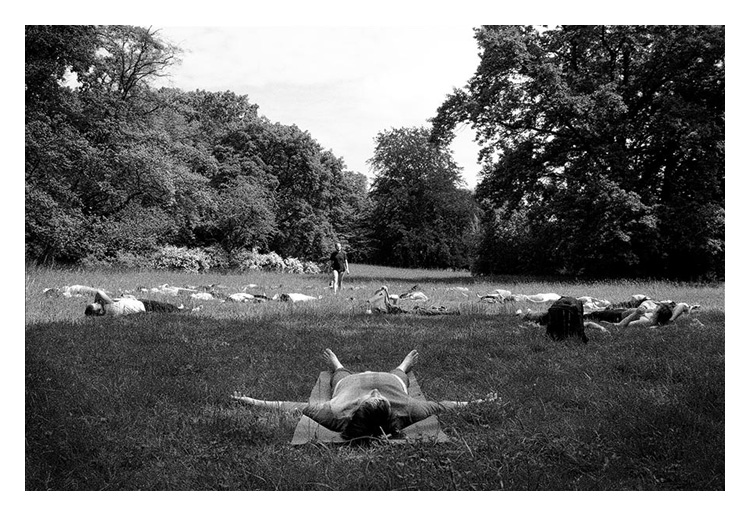A new study out of the University of California San Francisco recently published in PLoS ONE explores the efficacy of an 8-week yoga intervention for the treatment of depression. For adults diagnosed with mild-to-moderate major depression, the 8-week hatha yoga program showed clinically significant results in reducing symptoms and also improved self-esteem and self-efficacy.
The researchers sought to test the efficacy of this approach due to the increasing evidence that suggests exercise and yoga interventions are successful at decreasing depressive symptoms. The authors also stress that these interventions are cost-effective, accessible, and have a favorable risk-benefit profile.

This study adds to the growing literature on the efficacy and effectiveness of alternative interventions to traditional pharmacotherapy approaches. Previous studies have found evidence that exercise interventions are effective in reducing psychotic symptoms in schizophrenia, and improving cognitive functioning and depression in adults and children. Despite the significant evidence that exists in support of exercise as a preferred first-line approach, “conventional care” for major depression still recommends antidepressants as the first line of “treatment”. Authors of the study also highlight that even when treatment that is congruent with guideline recommendations is completed, low rates of remission remain.
In the current study, twenty participants who met diagnostic criteria for mild-to-moderate major depression were randomized to 90 minute Hatha yoga practice two times per week for 8 weeks, and eighteen participants were randomized to 90-minute control education groups twice per week. Hatha yoga interventions were implemented by certified yoga instructors.
Those in the attention control group attended instructor-led, 90-minute education modules on yoga history and philosophy. Outcomes of interest included depression severity, self-efficacy, and self-esteem. Depression was measured with the Beck Depression Inventory-II (BDI) every 2 weeks, self-efficacy was measured with the General Self-Efficacy Scale (GSES) and the Rosenberg Self-Esteem Scale (RSES) at baseline and at 8 weeks. Despite high rates of dropout, all 38 participants were included in intent-to-treat analyses for the depression outcome.
The researchers found a statistically significant group-by-time interaction indicating that when compared to the control group, the participants in the yoga group experienced a greater decrease in depression symptoms. Moreover, over the 8-week intervention period, depression scores for the yoga group declined more significantly. Sixty percent of those in the yoga group achieved remission while only 10% of those in the control group achieved remission. Self-Efficacy scores increased significantly in the yoga group and approached significance in the control group. Self-esteem scores increased significantly in the yoga group but not in the control group, however the difference did not reach statistical significance.
While the development and implementation of a yoga intervention for the treatment of depression is not a new concept, this randomized control trial was the first in the United States to evaluate acute mood effects of yoga in a sample diagnosed with a depressive disorder. This study adds to the ever-growing body of literature explicating the efficacy and effectiveness of exercise interventions for reducing depressive symptoms.
****
Prathikanti, S., Rivera, R., Cochran, A., Tungol, J. G., Fayazmanesh, N., & Weinmann, E. (2017). Treating major depression with yoga: A prospective, randomized, controlled pilot trial. PloS one, 12(3), e0173869. (Abstract)















What was the age of the participants? I would imagine the #1 factor would be not the yoga itself, nor type of yoga, but how they were introduced to it. If they were forced to do yoga, I can’t imagine it would be helpful. If they were encouraged, or if it were offered to them and they were willing participants doing this as a choice, then I can see it might be helpful. Also, I imagine the instructor would make a difference, too.
If you have a yoga instructor who constantly “corrects” a student’s posture, I cannot imagine students gaining benefit. However an encouraging and enthusiastic instructor in any topic, one that believes in the strength of the students as human beings can make all the difference for a student, even the most depressed ones. This might apply to any inspiring teacher, leader, or mentor, not just one who teaches yoga.
Report comment